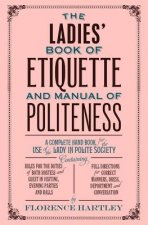
Code: 04866947
Industrialization of Rural China
by Chris Bramall
The growth of rural industry in China since 1978 has been explosive. Much of the existing literature explains its growth in terms of changes in economic policy. By means of a combination of privatization, liberalization and fiscal ... more
- Language:
 English
English - Binding: Hardback
- Number of pages: 448
Publisher: Oxford University Press, 2006
- More about this

You might also like
-

Oxford Studies in Metaphysics
58.69 € -

Jaia
19.42 € -

Bodies in Question
179.91 € -

Short Stories for Students
270.97 € -

Paris Spleen
12.51 € -22 % -

Handbook Of Solid State Batteries And Capacitors
316.15 € -

Catherine, Empress of All The Russias
18.32 € -18 %
Give this book as a present today
- Order book and choose Gift Order.
- We will send you book gift voucher at once. You can give it out to anyone.
- Book will be send to donee, nothing more to care about.
More about Industrialization of Rural China
You get 215 loyalty points
 Book synopsis
Book synopsis
The growth of rural industry in China since 1978 has been explosive. Much of the existing literature explains its growth in terms of changes in economic policy. By means of a combination of privatization, liberalization and fiscal decentralization, it is argued, rural industrialization has taken off. This book takes issue with such claims. Using a newly constructed dataset covering all of China's 2000 plus counties and complemented by a detailed econometric study of county-level industrialization in the provinces of Sichuan, Guangdong and Jiangsu, the author demonstrates that history mattered. More precisely, it is argued that the development of rural industry in the Maoist period set in motion a process of learning-by-doing whereby China's rural workforce gradually acquired an array of skills and competencies. As a result, rural industrialization was accelerating well before the 1978 climacteric. The growth of the 1980s and 1990s is therefore likely to be a continuation of this process. Without prior Maoist development of skills, the growth of the post-1978 era would have been much slower, and perhaps would not have occurred at all - as has been the case in countries such as India and Vietnam. This is not to say that the Maoist legacy was without flaw. Many of the rural industries created under Mao were geared towards meeting defence-related objectives resulting in inefficiencies, and there can be no question that post-1978 policy changes facilitated the growth process. But without the Maoist inheritance, rural industrialization across China would have been unsuccessful.
 Book details
Book details
Book category Books in English Society & social sciences Society & culture: general Social groups
85.04 €
- Full title: Industrialization of Rural China
- Author: Chris Bramall
- Language:
 English
English - Binding: Hardback
- Number of pages: 448
- EAN: 9780199275939
- ISBN: 0199275939
- ID: 04866947
- Publisher: Oxford University Press
- Weight: 816 g
- Dimensions: 240 × 160 × 30 mm
- Date of publishing: 21. December 2006
Trending among others
-

Women Who Run with the Wolves
10.01 € -11 % -

Hillbilly Elegy
14.42 € -28 % -

The Mastery of Love
12.41 € -18 % -

Women Who Run With The Wolves
15.62 € -19 % -

Orientalism
11.11 € -21 % -

Goddesses in Everywoman
12.31 € -21 % -

The Way of Men
13.31 € -21 % -

The Bell Curve
17.52 € -26 % -

When God Was A Woman
19.83 € -

Tom of Finland. The Complete Kake Comics
21.33 € -4 % -

Lean In
12.91 € -22 % -

Dance of Anger
11.21 € -21 % -

Desert Flower
10.21 € -23 % -

Humans of New York
25.94 € -15 % -

Story of the Jews
13.31 € -19 % -

Romantic Male Nude
29.94 € -25 % -

Eros and Mysteries of Love
16.42 € -21 % -

Muqaddimah
21.83 € -15 % -

Radium Girls
11.21 € -21 % -

Colloquial Yiddish
61.10 € -8 % -

New History of the Jews
27.94 € -

Jewish Fundamentalism in Israel
34.85 € -

Lakota Myth
17.32 € -23 % -

Occult Anatomy of Man; To Which Is Added a Treatise on Occult Masonry
7 € -

From the Ashes of Sobibor
25.13 € -

Aaliyah
11.81 € -2 % -

Sonia Delaunay
13.91 € -18 % -

Exorcism of Anneliese Michel
25.33 € -22 % -

Rising Tide of Color Against White World-Supremacy
18.02 € -

History of Masculinity
13.31 € -19 % -

Life's Journey - Zuya
20.13 € -22 % -

Between Men
30.14 € -

Lost Keys of Freemasonry
7.80 € -

Manipulated Man
12.61 € -25 % -

Second Sex
15.22 € -27 % -

The Autobiography of Malcolm X
10.61 € -5 % -

Iron John
16.42 € -21 % -

Nice Girls Don't Get The Corner Office
9.81 € -23 % -

Complete Persepolis
23.63 € -15 % -

1491 (Second Edition)
17.32 € -13 % -

Think Like a Monk
14.72 € -28 % -

How Europe Underdeveloped Africa
23.03 € -

The Male Nude
18.42 € -7 % -

Culture of Critique
24.03 € -15 % -

We Should All Be Feminists
6.90 € -30 % -

The Velvet Rage
16.32 € -22 % -

Between The World And Me
12.31 € -21 % -

Beauty Sick
11.21 € -28 % -

Ladies' Book of Etiquette and Manual of Politeness
12.11 € -24 %
Collection points Bratislava a 2642 dalších
Copyright ©2008-24 najlacnejsie-knihy.sk All rights reservedPrivacyCookies



 15549 collection points
15549 collection points Delivery 2.99 €
Delivery 2.99 € 02/210 210 99 (8-15.30h)
02/210 210 99 (8-15.30h)